- Home
- Nora Roberts
Suzanna's Surrender Page 9
Suzanna's Surrender Read online
Page 9
the cooler they'd set in the shade of a beech tree. As he pulled out a ginger ale, he heard the pick ring against the rocky soil. It was no use telling her she was crazy, he thought as he guzzled down the cold liquid. But he couldn't help it.
“You're a lunatic, Suzanna. This is the kind of work they give to people with numbers across their chest.”
“What we have here,” she said in a thick Southern drawl, “is a failure to communicate.”
Her quote of the line from Cool Hand Luke made him grin, but only for an instant. “Stark, raving mad,” he continued, watching her swing the pick. “What the hell do you think's going to grow in that rock?”
“You'd be surprised.” She took a moment to wipe at the sweat that was dripping in her eyes. “See those lilies on the bank there?” She gave a little grunt as she dislodged a rock. “I planted them two years ago in September.”
He glanced at the profusion of tall, colorful flowers with grudging admiration. He had to admit that they were an improvement over the rough, rocky soil, but was it worth it?
“The Snyders gave me my first real job.” She hefted a rock and tossed it into the wheelbarrow. Stretching her back, she listened to the fat bees buzzing in the gaillardia. “A sympathy job, seeing as they were friends of the family and poor Suzanna needed a break.” Her breath whooshed out as she struck soil, and she blinked away the little red dots in front of her eyes. “Surprised them that I knew what I was doing, and I've been working here on and off ever since.”
“Great. Would you put that damn thing down a minute?”
“Almost done.”
“You won't be done until you keel over. Who's going to see a few posies wilting all the way up here?”
“The Snyders will see them, their guests will see them.” She shook her head to clear a haze brought on by the heat. “The photographer from New England Gardens will see them.” Lord, the bees were loud, she thought as the buzzing filled her head. “And nothing's going to wilt. I'm putting in pinks and campanula and some coreopsis, some lavender for scent and monarda for the hummingbirds.” She pressed a hand to her head, ran it over her eyes. “In September we'll plant some bulbs. Dwarf irises and windflowers. Some tuberoses and...” She staggered under a hot wave of dizziness. Holt made the dash from shade to sun as the pick slid out of her hands. When he grabbed her she seemed to melt into his arms.
Cursing her helped relieve the fright as he carried her over and laid her down under the tree. Her body was like hot wax he could all but pour onto the cool grass. “That's it.” He plunged his hand into the cooler then rubbed icy water over her face. “You're finished, do you understand? If I see a pick in your hands again. I'll murder you.”
“I'm all right” Her voice was weak, but the irritation was clear enough. “Just a little too much sun.” The water on her face felt heavenly, even if his hands were a bit rough. She took the ginger ale from him and drank carefully.
“Too much sun,” he was ranting, “too much work. And not enough food or sleep from the look of you. You're a mess, Suzanna, and I'm tired of it.”
“Thank you very much.” She pushed his hands away and leaned back against the tree. She needed a minute, she'd admit. But she didn't need a lecture. “I should have taken a break,” she said in disgust “I know better, but I've got things on my mind.”
“I don't care what you've got on your mind.” God, she was white as a sheet He wanted to hold her until the color came back into her cheeks, to stroke her hair until she was strong and rested again. But the concern came out in fury. “I'm taking you home and you're going to bed.”
Steadier, she set the bottle aside. “I think you're forgetting who works for whom.”
“When you pass out on me, I take Over.”
“I didn't pass out,” she said irritably. “I got dizzy. And nobody takes over for me, not now, not ever again. Stop splashing water in my face, you're going to drown me.”
She was recovering fast enough, he thought, but it didn't cool his temper. “You're stubborn, hardheaded and just plain stupid.”
“Fine. If you've finished yelling at me, I'm going to take my lunch break.” She knew she had to eat She didn't mind being stubborn or hardheaded, but she did mind being stupid. Which, she thought as she snatched a sandwich out of the cooler, was exactly what she had been to skip breakfast.
“Maybe I haven't finished yelling.”
She shrugged as she unwrapped the sandwich. “Then you can yell while I eat. Or you can stop wasting time and have some lunch.”
He considered dragging her to the truck. He liked the idea, but the benefits would only be short-term. Short of tying her up and locking her in a room, he couldn't stop her from working herself into the ground.
At least she was eating, he reflected. And the color had seeped back into her cheeks. Maybe there was another tack to getting his way. Casually he took out a sandwich.
“I've been thinking about the emeralds.”
The change in topic and attitude surprised her. “Oh?”
. “I read the transcript Max put together from the interview with Mrs. Tobias, the maid. And I listened to the tape.”
“What do you think?”
“I think she's got a good memory, and that she was impressed by Bianca. From her viewpoint, the setup was that Bianca was unhappy in her marriage, devoted to her children and in love with my grandfather. She and Fergus were already on shaky ground when they had the blowout over the dog. We'll figure that was the straw that broke it. She decided to leave him, but she didn't go that night. Why?”
“Even if she'd finally made the decision,” Suzan-na said slowly, “there would have been arrangements to make. She'd have had to consider the children.”
This she understood all too well. “Where could she take them, how could she be certain she could provide for them. Even if the marriage was a disaster, she would have to plan carefully how to tell them she was taking them away from their father.”
“So when Fergus left for Boston after they fought, she started to work it out. We have to figure she went to my grandfather, because he ended up with the dog.”
“She loved him,” Suzanna murmured. “She would have gone to him first. And he loved her, so he would have wanted to go away with her and the children.”
“If we go with that, we take it to the next step. She went back to The Towers to pack, to get the kids together. But instead of meeting my grandfather and riding off into the sunset, she takes a jump out of the tower window. Why?”
“She was in turmoil.” With her eyes half-closed, Suzanna stared into the sunlight. “She was about to take a step that would end her marriage, separate her children from their “fattier. Break her vows. It's so difficult, so frightening. Like 'dying. Maybe she thought she was a failure, and when her husband came home, and she had to face him and herself, she couldn't.”
Holt ran a hand over her hair. “Is that what it was like for you?”
Her shoulders stiffened. “We're talking about Bianca. And I don't see what her reasons for killing herself have to do with the emeralds.”
Holt took his hand away. “First we decide why she hid them, then we go for where.”
Slowly she relaxed again. “Fergus gave them to her when their first son was born. Not their first child. A girl didn't rate.” She took another sip of her ginger ale and washed away some of her own bitterness. “She would have resented that, I think. To be rewarded—like a prize mare—for producing an heir. But, they were hers because the child was hers.”
Because her eyes were heavy, she let them drift closed. “Bax gave me diamonds when Alex was born. I didn't feel guilty about selling them to start the business. Because they were mine. She might have felt the same way. The emeralds would have bought a new life for her, for the children.”
“Why did she hide them?”
“To make certain he didn't find them if he stopped her from leaving. So that she knew she'd have something of her own.”
�
��Did you hide your diamonds, Suzanna?”
“I put them in Jenny's diaper bag. The last place Baxter would look.” With a half laugh, she plucked at the grass. “That sounds so melodramatic.”
But he wasn't smiling or sneering, she noted. He was frowning out at the dianthiums where the bees hovered and hummed. “It sounds damn smart to me. She spent a lot of time in the tower, right?”
“We've looked there.”
“We'll look again, and take her bedroom apart.”
“Lilah will love that.” Suzanna closed her eyes again. The food and the shade were making her sleepy. “It's her bedroom now. And we've looked there, too.”
“I haven't.”
“No.” She decided it wouldn't hurt to stretch out while they finished talking it through. The grass was blissfully cool and soft. “If we found her journal, we'd know the answers. Mandy went through every book in the library, just in case it got mixed in like the purloined letter.”
He began to stroke her hair again. “We'll take another look.”
“Mandy wouldn't have missed anything. She's too organized.”
“I'd rather check over old ground than depend on a séance.”
She made a sound that was half laugh and half sigh. “Aunt Coco'll talk you into it.” Her voice grew heavy with fatigue. “We need to plant the pinks first.”
“Okay.” He'd moved his hands down and was gently massaging her shoulders.
“It'll trail right over the rocks and down the bank. It doesn't give up,” she murmured, and was asleep.
'“You're telling me.”
He left her there in the shade and walked back into the sunlight.
The grass was tickling her cheek when she woke. She'd rolled over onto her stomach and had slept like a stone. Groggy, she opened her eyes. She saw Holt sitting back against the tree, his legs crossed at the ankles. He was watching her as he brought a cigarette to his lips.
“I must have dozed off.”
“You could say that.”
“Sorry.” She pushed herself up on her elbow. “We were talking about the emeralds.”
He flicked the cigarette away. “We've talked enough for now.” In one swift move, he hooked his hands under her arms and pulled her against him. Before she was fully awake, she was in his lap and his mouth was on hers.
He'd watched her sleep. And as he had watched her sleep, the need to touch her had boiled inside him until his blood was like lava. She'd looked so perfect, the sleeping princess, creamy skin dappled by hazy shade, her cheek resting on her hand, her hand on the grass.
He'd wanted those soft, warm lips under his, to feel that long, fragile body molded to him, to hear that quick little catch in her breathing. So he took, feverishly.
Disarmed, disoriented, she struggled back. Her blood had gone from slow and cool to rapid and hot Her body, relaxed by sleep, was now taut as a bow. She dragged in a single ragged breath. All she could see was his face, his eyes dark and dangerous, his mouth hard and hungry. Then all was a blur as his lips brushed down on hers again.
She let him take what he seemed to need to take so desperately. Under the shade of the beech she pressed against him, answering each demand. When the dizziness came again, she reveled in it. This was not a weakness she had to fight. It was one she had wanted to feel as long as she could remember.
On an oath, he buried his face at her throat where her pulse jackhammered. Nothing and no one had ever made him feel like this. Frantic and shaky. Each time his mouth came back to hers it was with a new edge of desperation, each keener than the last Dozens of sensations knifed into him, all sharp and deadly. He wanted to shove her aside, walk away before they cut him to ribbons. He wanted to roll with her on the cool, soft grass and drive out all the aches and jagged needs.
But her arms were around him, her hands moving restlessly through his hair while her body trembled. Then her cheek was against his, nuzzling there in a gesture that was almost unbearably sweet.
“What are we going to do?” she murmured. Wanting comfort, she turned her lips to his skin and sighed.
“I think we both know the answer to that”
Suzanna closed her eyes. It was so simple for him. She rested against him a moment, listening to the bees buzz in the flowers. “I need time.”
He put his hands on her shoulders, pushing her back until they were face-to-face. “I may not be able to give it to you. We're not children anymore, and I'm tired of wondering what it would be like.”
She let out a shaky breath. The turmoil wasn't only hers, she realized. She could feel it, shimmering out of him. “If you ask for more than I can give, we'll both be disappointed. I want you.” She bit back a gasp when his fingers tightened. “But I can't make another mistake.”
His eyes darkened and narrowed. “Do you want promises?”
“No,” she said quickly. “No, I don't But I have to keep the ones I made to myself. If I come to you, I have to be sure it's not just something I want, but something I can live with.” Reaching out, she laid a hand on his cheek. “The one thing I can promise you is that if we're lovers, I won't regret it.”
He couldn't argue, not when she looked at him that way. “When,” he corrected.
“When,” she said with a nod, then rose. Her legs weren't as shaky as she'd thought they would be. She felt stronger. When, she thought again. Yes, she'd already accepted that it was only a matter of time. “But for now, we'll have to take things as they come. We've got a job to finish.”
“It's finished.” He pulled himself to his feet as she turned.
The plants were in place, the ground smoothed and mulched. Where there had only been rocks and thin, thirsty soil were bright hopeful young flowers and tender green leaves.
“How?” she began, already hurrying over to study his work.
“You slept three hours.”
“Three—” Appalled, she looked back at him. “You should have woken me up.”
“I didn't,” he said simply. “Now I've got to get back, I'm running late.”
“But you shouldn't have—”
“It's done.” Impatience shimmered around him. “Do you want to rip the damn things out and do it yourself?”
“No.” As she studied him she realized he wasn't just angry, he was embarrassed. Not only had he done something sweet and considerate, but he'd spent three hours planting what he still sneeringly called posies.
So he stood there, she thought, looking very male and ruffled in the streaming sun, the charming rockery at his feet and his rough, clever hands stuffed in his pockets. Thank me and I'll snarl, he seemed to say.
It was then, facing him on the rocky slope, that she realized what she had refused to admit in his arms. What she had insisted was only passion and need. She loved him. Not just for the hot-blooded kisses or the demanding hands. But for the man beneath. The man who would run a careless hand over her son's hair or answer her little girl's incessant questions. The man who would leave paint splattered on the floor in memory of his grandfather.
The one who would plant flowers for her while she slept.
As she continued to stare, Holt shifted uncomfortably. “Look, if you're going to faint again, I'm going to leave you where you fall. I haven't got time to play nursemaid.”
A smile moved slowly, beautifully over her face, confusing him. She loved him for that, too—that snapping impatience that covered the compassion. She would need time to think, of course. Time to adjust. But for now, for this moment, she could simply hold tight to this rush of feeling and be content.
“You did a good job.”
He glanced back at the flowers, certain he'd rather cut out his tongue than admit how much he'd enjoyed the work. “You stick them in and cover them up.” He moved his shoulders in dismissal. “I put the tools and stuff in the truck. I've got to go.”
“I put the Bryce job off until Monday. Tomorrow—I have to be home tomorrow.”
“All right. See you later.”
As he
walked off to his car, Suzanna knelt down to touch the fragile new blooms.
In the cottage near the water, the man who called himself Marshall completed a thorough search. He found a few things of minor interest. The ex-cop liked to read and didn't cook. There were shelves of well-worn books in the bedroom, and only a few scattered supplies in the kitchen. He kept his medals in a box tossed in the bottom of a drawer, and a loaded .32 at the ready in the nightstand.
After rifling through a desk, Marshall discovered that Christian's grandson had made a few shrewd investments. He found it amusing that a former Vice cop had had the sense to create a tidy nest egg. He also found it interesting that training had caused Holt to write up a detailed report on everything he knew about the Calhoun emeralds.
His temper threatened as he read of the interview with the former servant—the servant that Maxwell Quartermain had located. That grated. Quartermain should have been working for him. Or he should have been dead. Marshall was tempted to wreck the place, to toss furniture, break lamps. To give in to an orgy of destruction.
But he forced himself to stay calm. He didn't want to tip his hand. Not yet. Perhaps he hadn't found anything particularly enlightening, but he knew as much as the Calhouns did.
Very carefully, he put the papers back in place, shut the drawers. The dog was beginning to bark out in the yard. He detested dogs. Sneering at the sound, he rubbed at the scar on his leg where the little Calhoun mutt had bitten him. They would have to pay for that. They would all have to pay.
And so they would, he thought When he had the emeralds.
He left the cottage precisely as he had found it.
I will not write of the winter. That is not a memory I wish to relive. But I did not leave the island. Could not leave it. She was never out of my mind in those months. In the spring, she remained with me. In my dreams.
And then, it was summer.
It isn't possible for me to write how I felt when I saw her running to me. I could paint it, but I could never find the words. I haunted those cliffs, waiting for her, hoping for her. It had become easy to convince myself that it would be enough just to see her, just to speak with her again. If she would only walk down the slope, through the wildflowers and sit on the rocks with me.
Then all at once, she was calling my name, running, her eyes so filled with joy. She was in my arms, her mouth on mine. And I knew she had suffered as I had suffered. She loved as I loved.
We both knew it was madness. Perhaps I could have been stronger, could have convinced her to go and leave me. But something had changed in her over the winter. No longer would she be content with only emptiness, as I learned her marriage was for her. Her children, so dear to her, could not forge a bond between her and the husband who wanted only obedience and duty. Yet I could not allow her to give herself to me, to take the step that could cause her guilt or shame or regret.
So we met, day after day on the cliffs, in all innocence. To talk and laugh, to pretend the summer was endless. Sometimes she brought the children, and it was almost as if we were a family. It was reckless, but somehow we didn't believe anything could touch us while we stood, cupped between sky and sea, with the peaks of the house far up at our backs.
We were happy with what we had. There have been no happier days in my life before or since. Love like that has no beginning or end. It has no right or wrong. In those bright summer days, she was not another man's wife. She was mine.
A lifetime later, I sit here in this aging body and look out at the water. Her face, her voice, come so clearly to me.
She smiled. “I used to dream of being in love.”
I had taken the pins from her hair so that my hands could lose themselves in it. A small, precious pleasure. “Do you still?”
“Now I don't have to.” She bent toward me, to touch her lips to mine. “I'll never have to dream again. Only wish.''
I took her hand to kiss it, and we watched an eagle soar. “There's a ball tonight. I'll wish you were there, to waltz with me.”
I got to my feet, drew her to hers and began to dance with her through the wild roses. “Tell me what you'll wear, so I can see you.”
Laughing, she lifted her face to mine. “I shall wear ivory silk with a low bodice that bares my shoulders and a draped beaded skirt that catches the light. And my emeralds.”
“A woman shouldn't look sad when she speaks of emeralds.''
“No.'' She smiled again. “These are very special. I've had them since Ethan was born, and I wear them to remind me.”

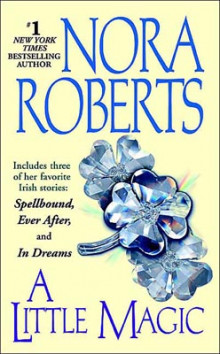 A Little Magic
A Little Magic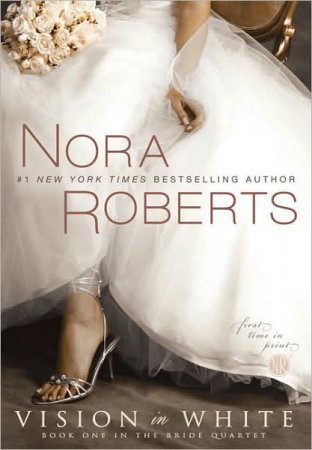 Vision in White
Vision in White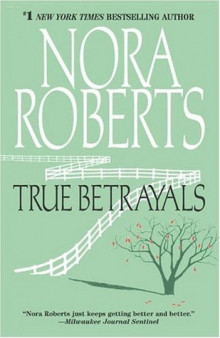 True Betrayals
True Betrayals The Next Always
The Next Always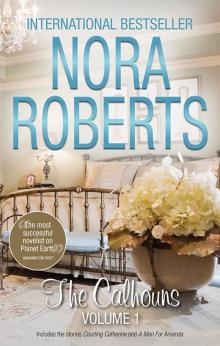 A Man for Amanda
A Man for Amanda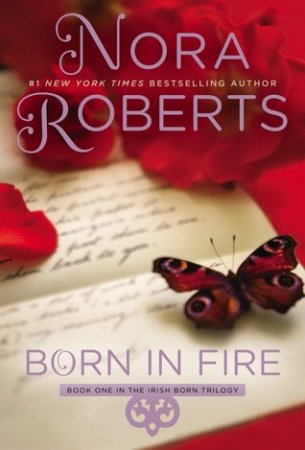 Born in Fire
Born in Fire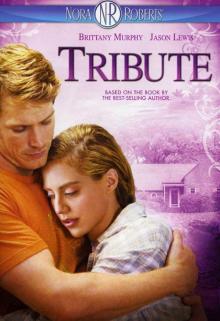 Tribute
Tribute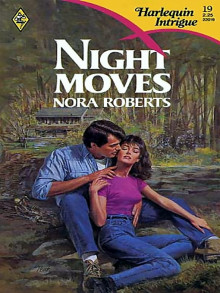 Night Moves
Night Moves Dance Upon the Air
Dance Upon the Air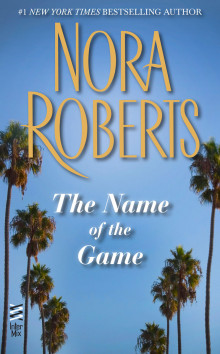 The Name of the Game
The Name of the Game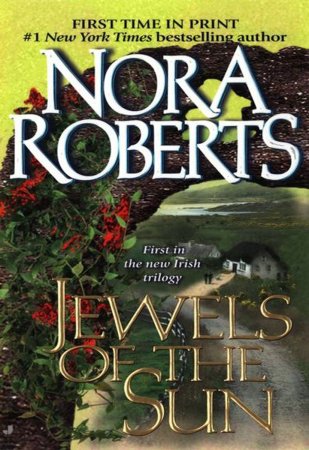 Jewels of the Sun
Jewels of the Sun River's End
River's End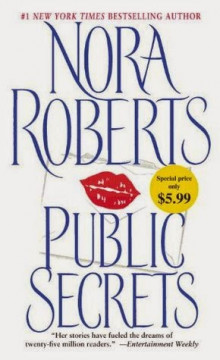 Public Secrets
Public Secrets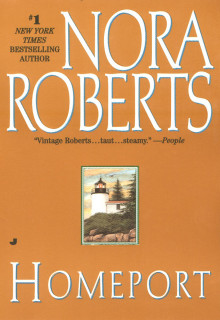 Homeport
Homeport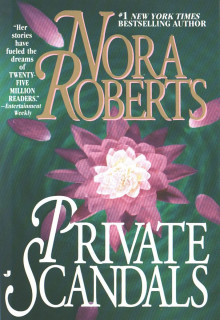 Private Scandals
Private Scandals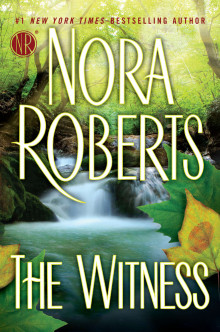 The Witness
The Witness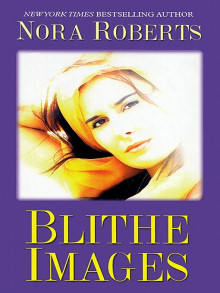 Blithe Images
Blithe Images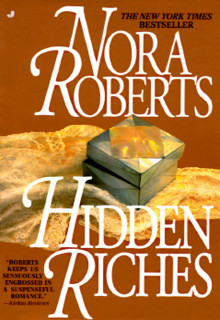 Hidden Riches
Hidden Riches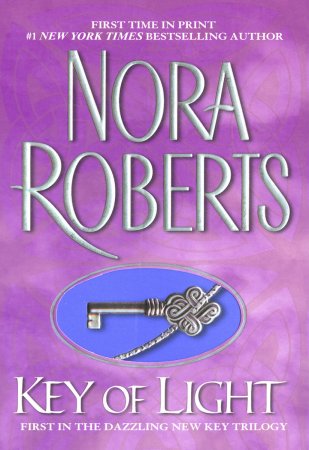 Key of Light
Key of Light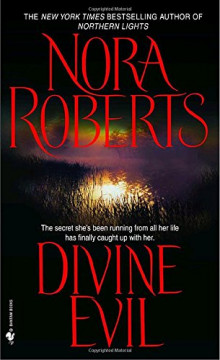 Divine Evil
Divine Evil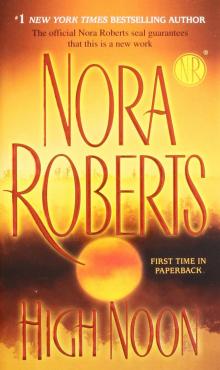 High Noon
High Noon Blue Dahlia
Blue Dahlia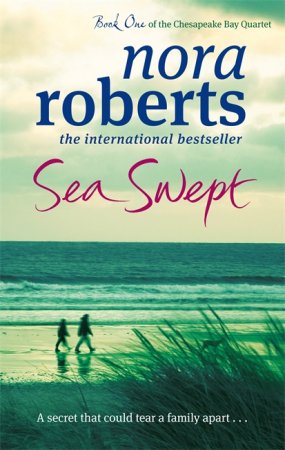 Sea Swept
Sea Swept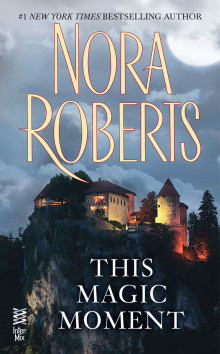 This Magic Moment
This Magic Moment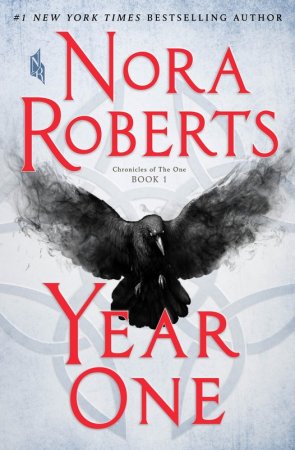 Year One
Year One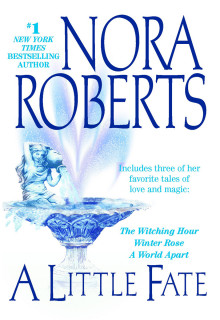 A Little Fate
A Little Fate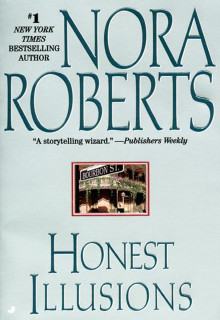 Honest Illusions
Honest Illusions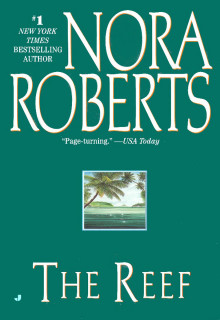 The Reef
The Reef Shelter in Place
Shelter in Place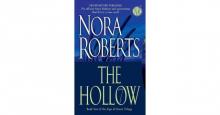 The Hollow
The Hollow Holding the Dream
Holding the Dream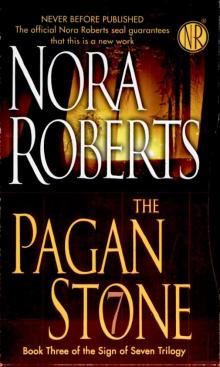 The Pagan Stone
The Pagan Stone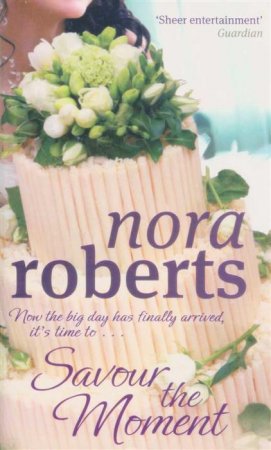 Savour the Moment
Savour the Moment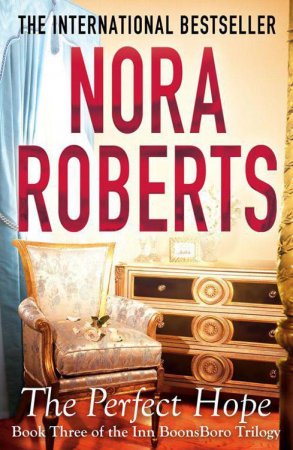 The Perfect Hope
The Perfect Hope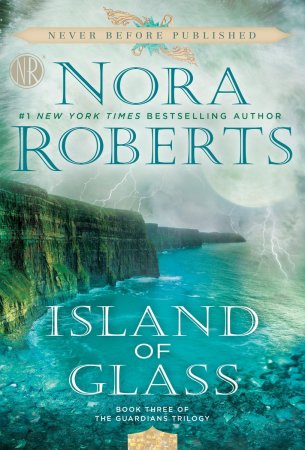 Island of Glass
Island of Glass Happy Ever After
Happy Ever After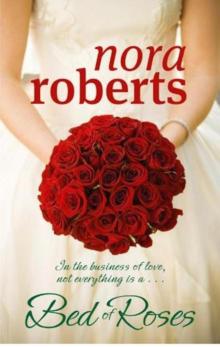 Bed of Roses
Bed of Roses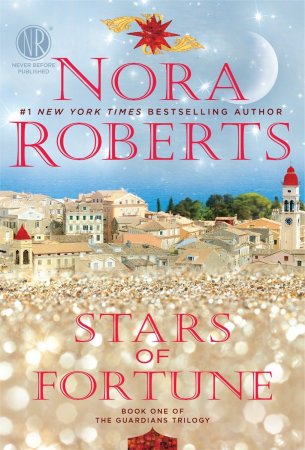 Stars of Fortune
Stars of Fortune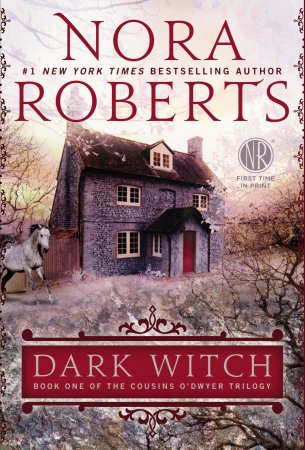 Dark Witch
Dark Witch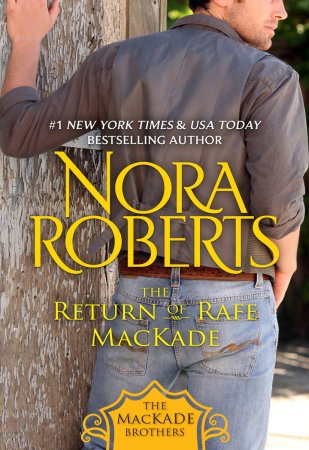 The Return of Rafe MacKade
The Return of Rafe MacKade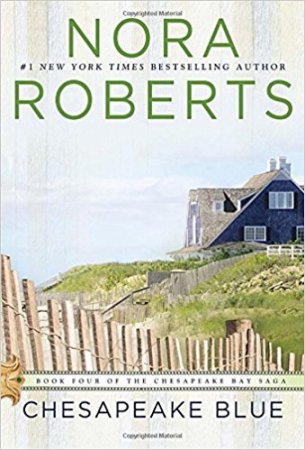 Chesapeake Blue
Chesapeake Blue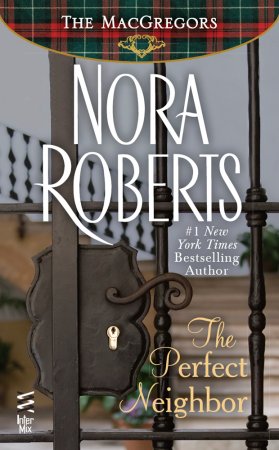 The Perfect Neighbor
The Perfect Neighbor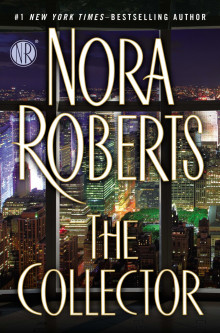 The Collector
The Collector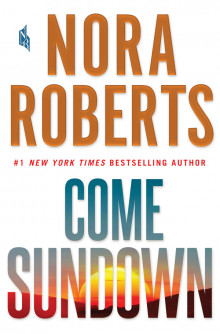 Come Sundown
Come Sundown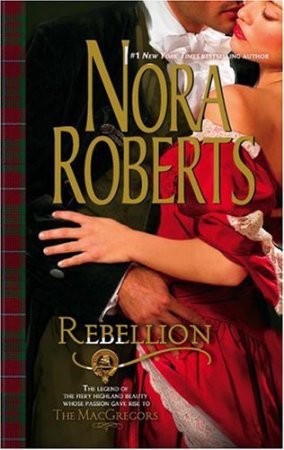 Rebellion
Rebellion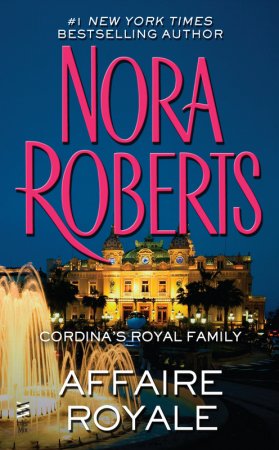 Affaire Royale
Affaire Royale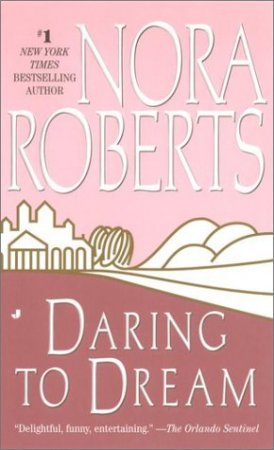 Daring to Dream
Daring to Dream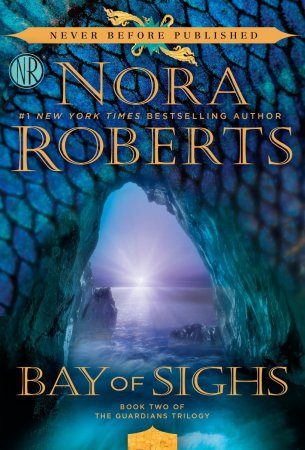 Bay of Sighs
Bay of Sighs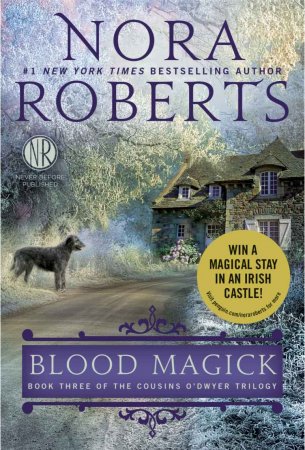 Blood Magick
Blood Magick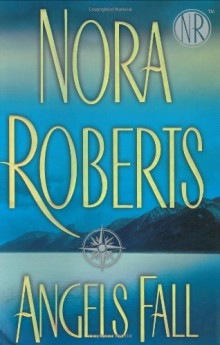 Angels Fall
Angels Fall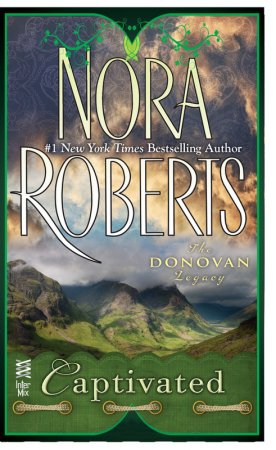 Captivated
Captivated The Last Boyfriend
The Last Boyfriend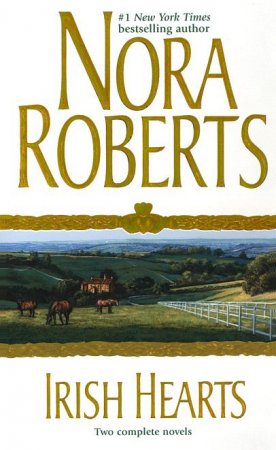 Irish Thoroughbred
Irish Thoroughbred Inner Harbor
Inner Harbor The Right Path
The Right Path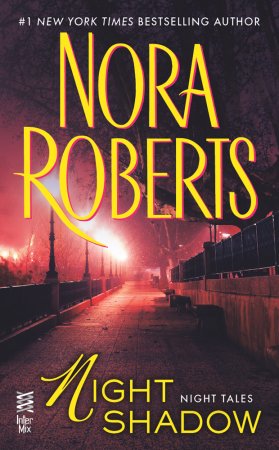 Night Shadow
Night Shadow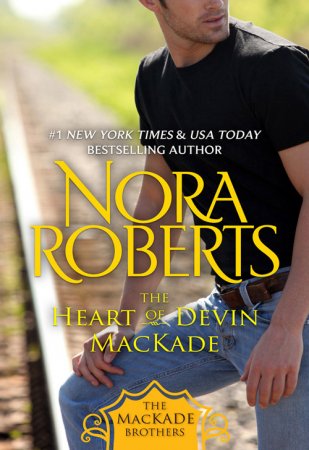 The Heart of Devin MacKade
The Heart of Devin MacKade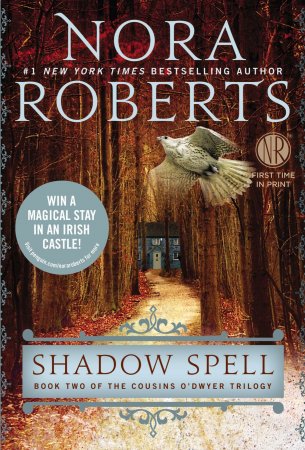 Shadow Spell
Shadow Spell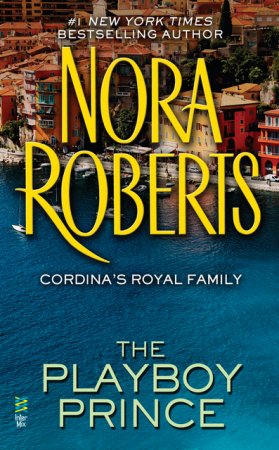 The Playboy Prince
The Playboy Prince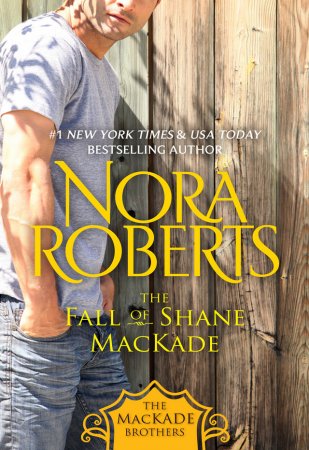 The Fall of Shane MacKade
The Fall of Shane MacKade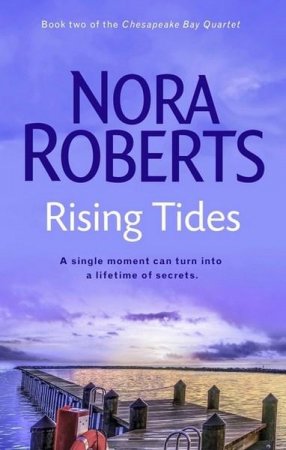 Rising Tides
Rising Tides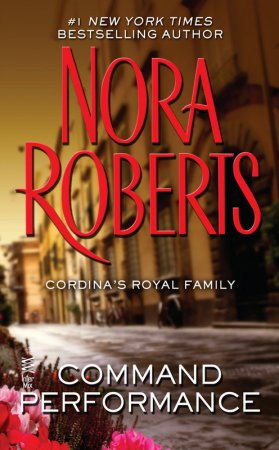 Command Performance
Command Performance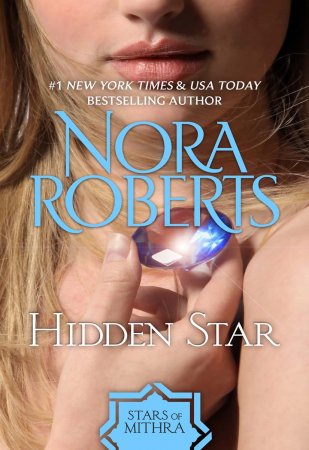 Hidden Star
Hidden Star Cordina's Crown Jewel
Cordina's Crown Jewel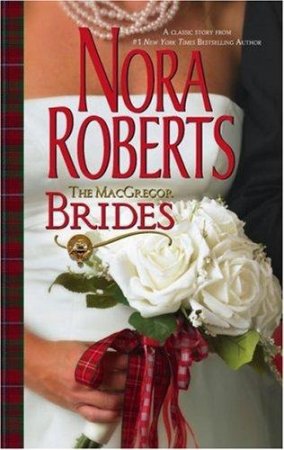 The MacGregor Brides
The MacGregor Brides The Pride of Jared MacKade
The Pride of Jared MacKade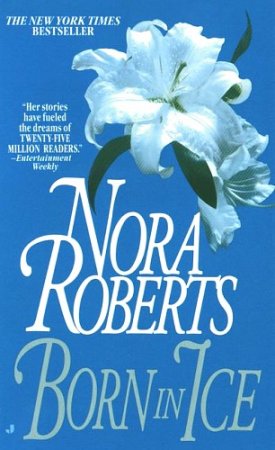 Born in Ice
Born in Ice Whiskey Beach
Whiskey Beach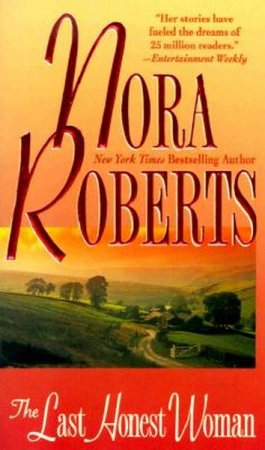 The Last Honest Woman
The Last Honest Woman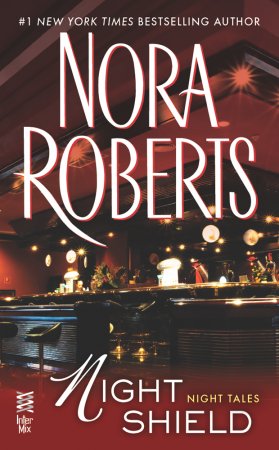 Night Shield
Night Shield Born in Shame
Born in Shame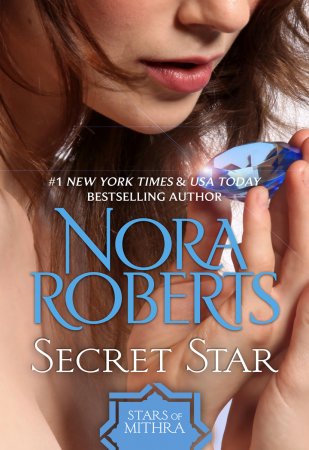 Secret Star
Secret Star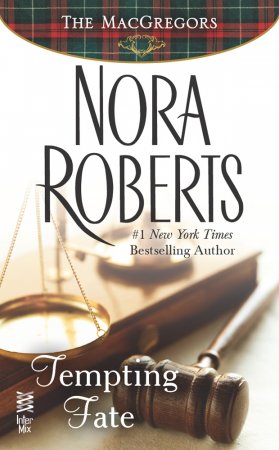 Tempting Fate
Tempting Fate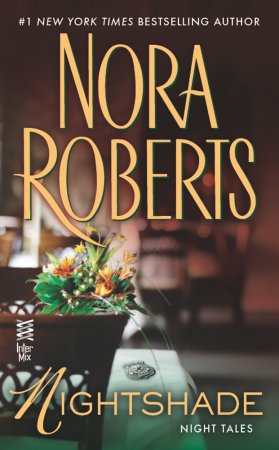 Nightshade
Nightshade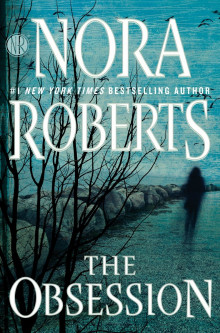 The Obsession
The Obsession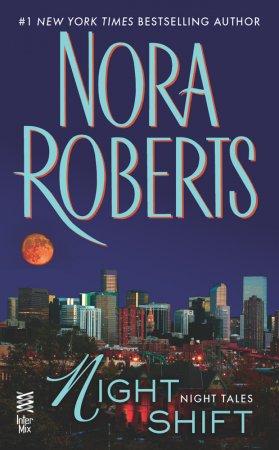 Night Shift
Night Shift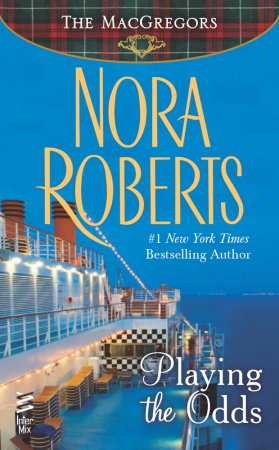 Playing The Odds
Playing The Odds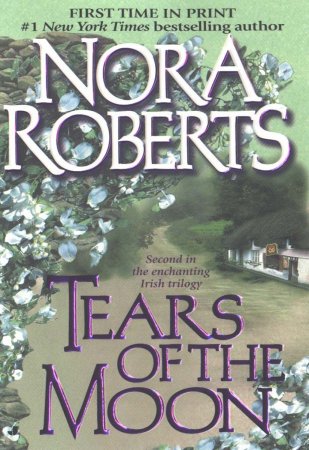 Tears of the Moon
Tears of the Moon One Man's Art
One Man's Art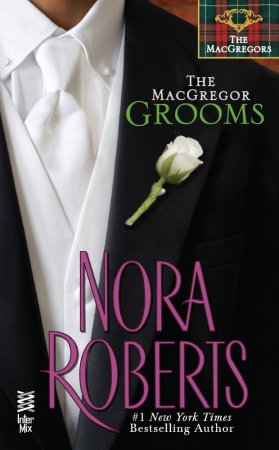 The MacGregor Groom
The MacGregor Groom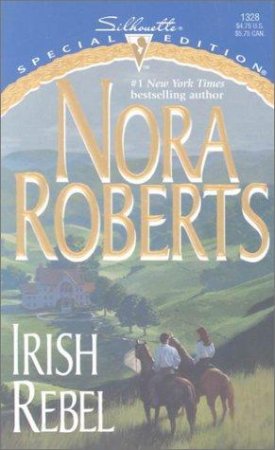 Irish Rebel
Irish Rebel Morrigan's Cross
Morrigan's Cross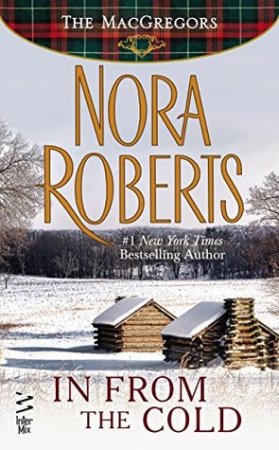 In From The Cold
In From The Cold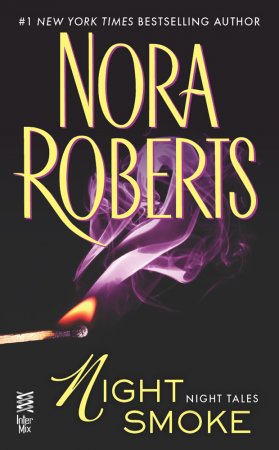 Night Smoke
Night Smoke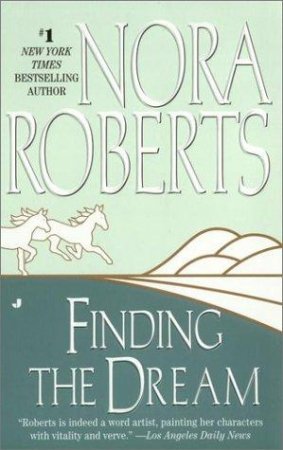 Finding the Dream
Finding the Dream Red Lily
Red Lily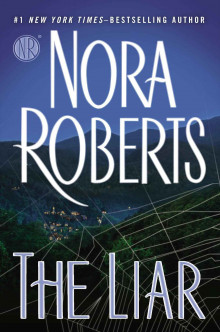 The Liar
The Liar Montana Sky
Montana Sky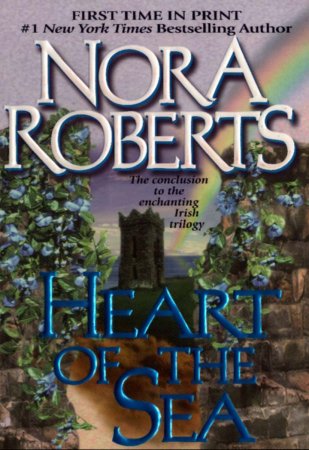 Heart of the Sea
Heart of the Sea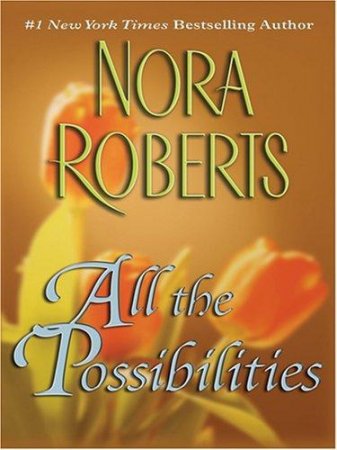 All The Possibilities
All The Possibilities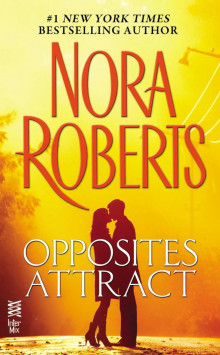 Opposites Attract
Opposites Attract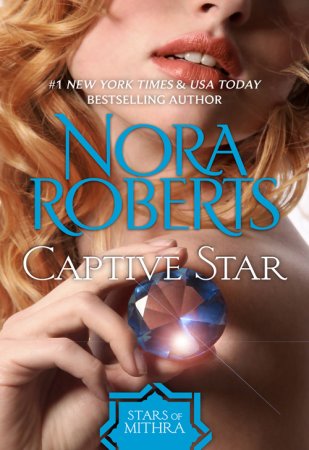 Captive Star
Captive Star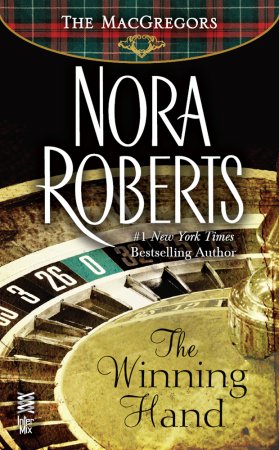 The Winning Hand
The Winning Hand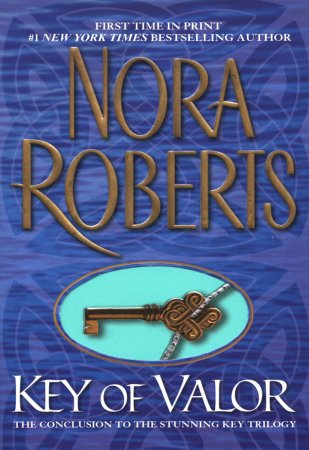 Key of Valor
Key of Valor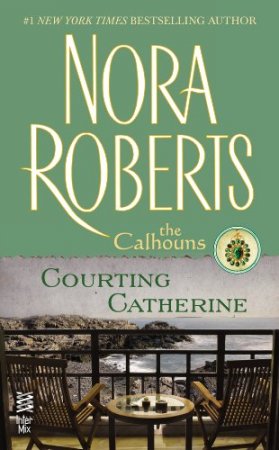 Courting Catherine
Courting Catherine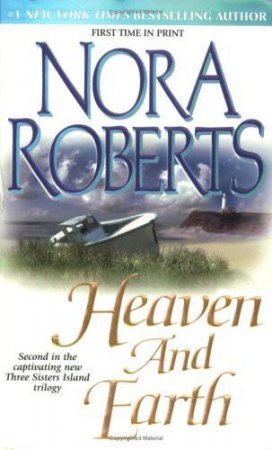 Heaven and Earth
Heaven and Earth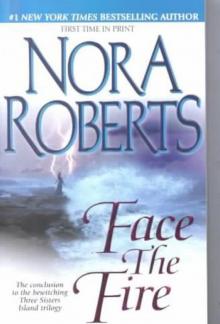 Face the Fire
Face the Fire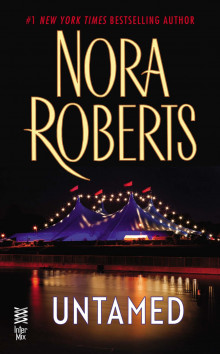 Untamed
Untamed Skin Deep
Skin Deep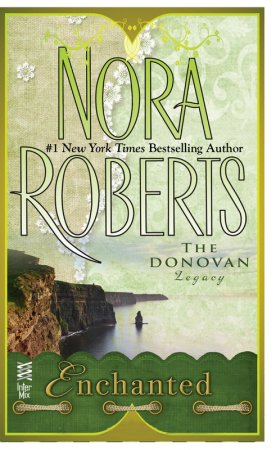 Enchanted
Enchanted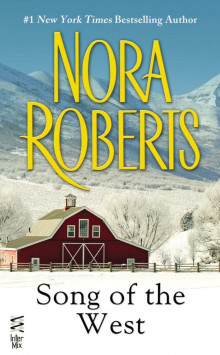 Song of the West
Song of the West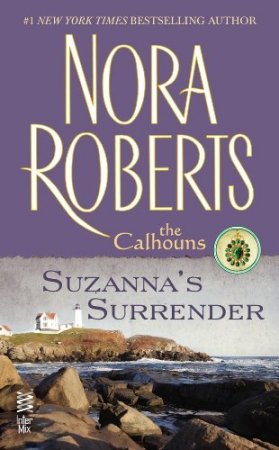 Suzanna's Surrender
Suzanna's Surrender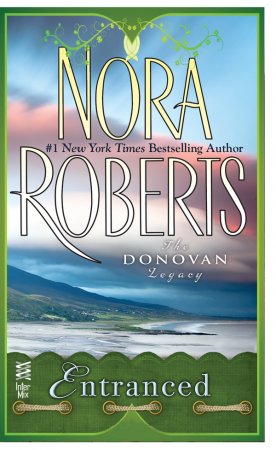 Entranced
Entranced Dance of the Gods
Dance of the Gods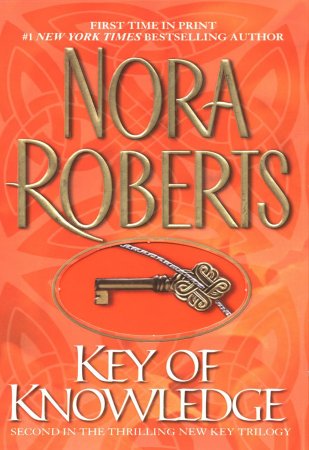 Key of Knowledge
Key of Knowledge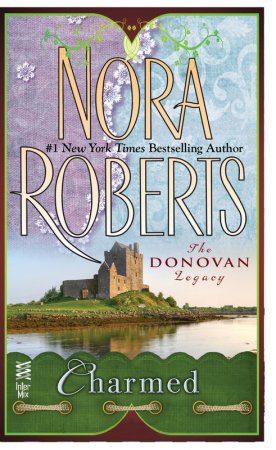 Charmed
Charmed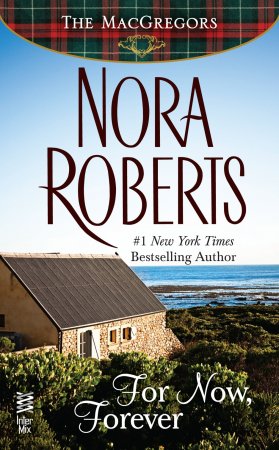 For Now, Forever
For Now, Forever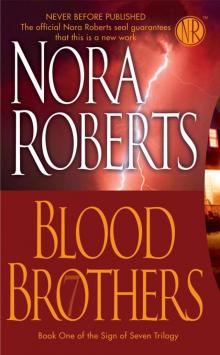 Blood Brothers
Blood Brothers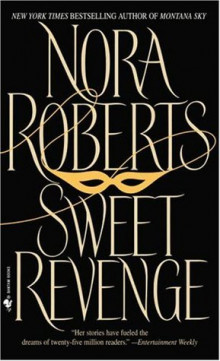 Sweet Revenge
Sweet Revenge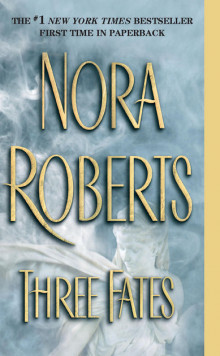 Three Fates
Three Fates Mind Over Matter
Mind Over Matter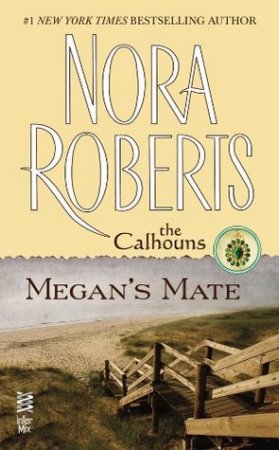 Megan's Mate
Megan's Mate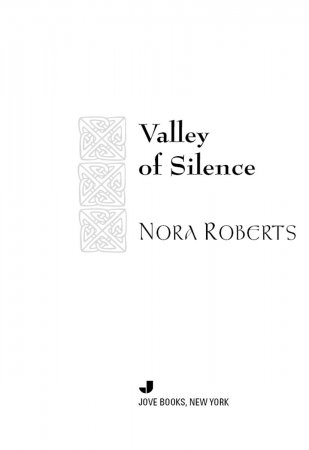 Valley of Silence
Valley of Silence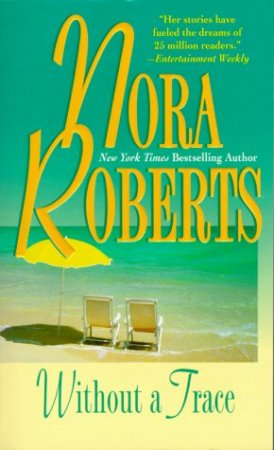 Without A Trace
Without A Trace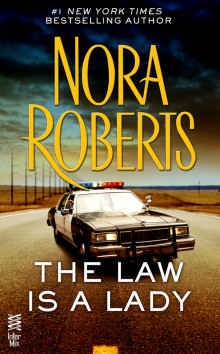 The Law is a Lady
The Law is a Lady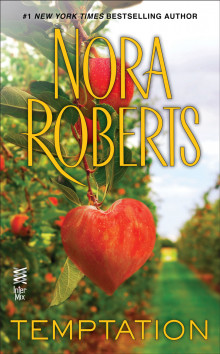 Temptation
Temptation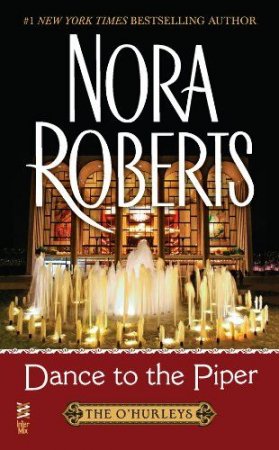 Dance to the Piper
Dance to the Piper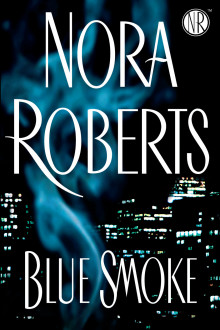 Blue Smoke
Blue Smoke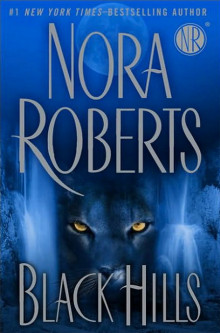 Black Hills
Black Hills The Heart's Victory
The Heart's Victory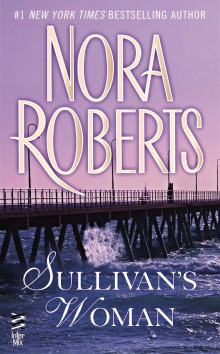 Sullivan's Woman
Sullivan's Woman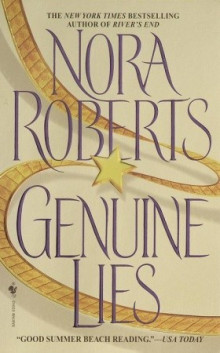 Genuine Lies
Genuine Lies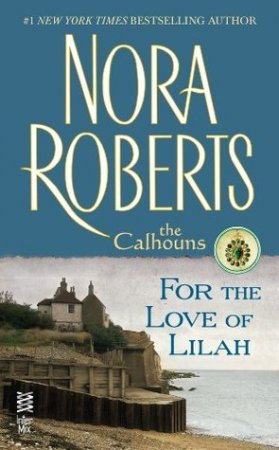 For the Love of Lilah
For the Love of Lilah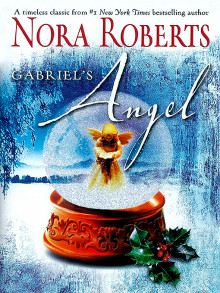 Gabriel's Angel
Gabriel's Angel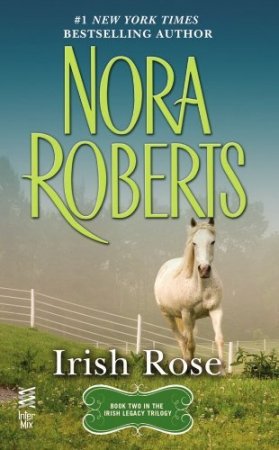 Irish Rose
Irish Rose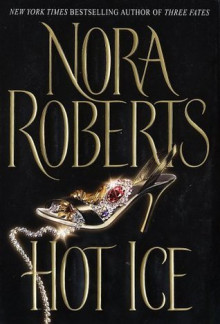 Hot Ice
Hot Ice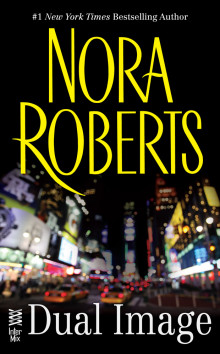 Dual Image
Dual Image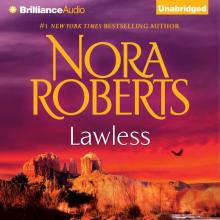 Lawless
Lawless Catch My Heart
Catch My Heart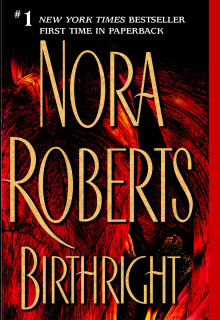 Birthright
Birthright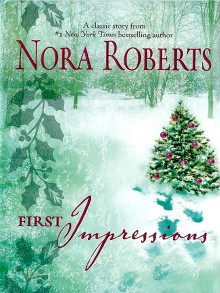 First Impressions
First Impressions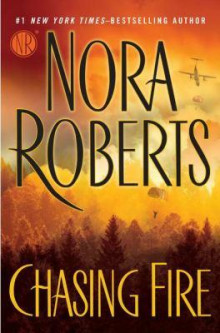 Chasing Fire
Chasing Fire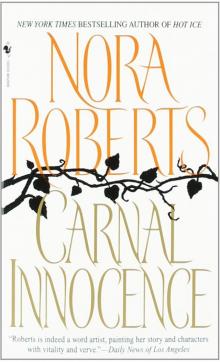 Carnal Innocence
Carnal Innocence Best Laid Plans
Best Laid Plans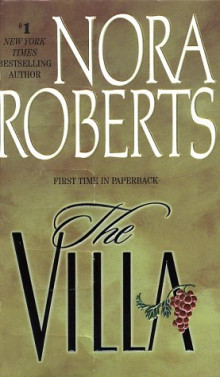 The Villa
The Villa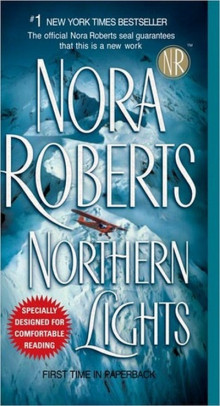 Northern Lights
Northern Lights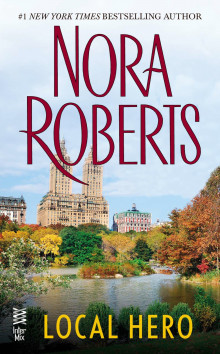 Local Hero
Local Hero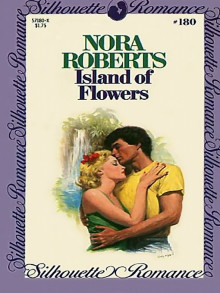 Island of Flowers
Island of Flowers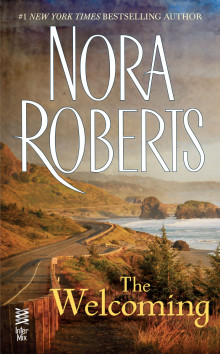 The Welcoming
The Welcoming All I Want for Christmas
All I Want for Christmas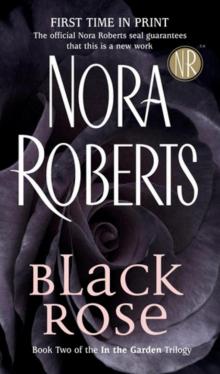 Black Rose
Black Rose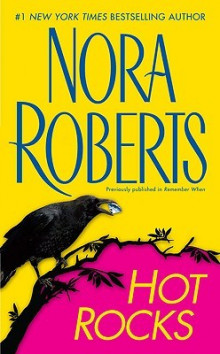 Hot Rocks
Hot Rocks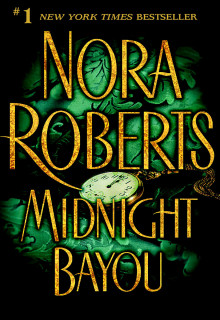 Midnight Bayou
Midnight Bayou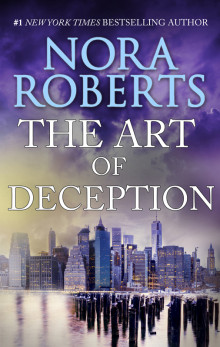 The Art of Deception
The Art of Deception From This Day
From This Day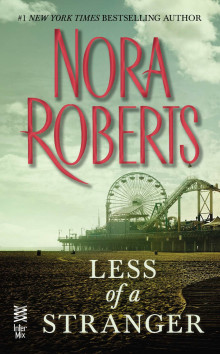 Less of a Stranger
Less of a Stranger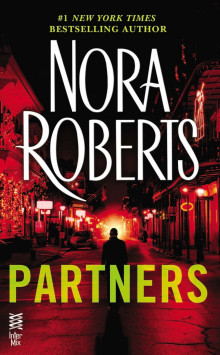 Partners
Partners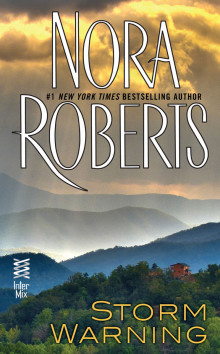 Storm Warning
Storm Warning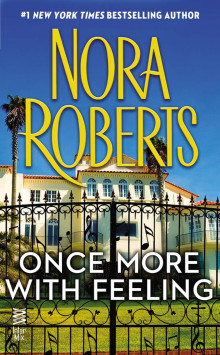 Once More With Feeling
Once More With Feeling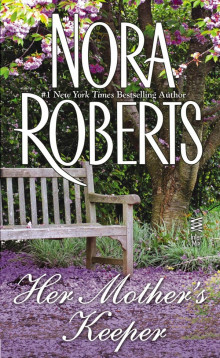 Her Mother's Keeper
Her Mother's Keeper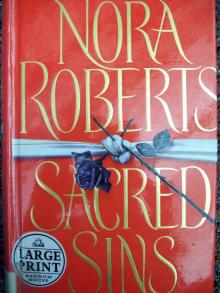 Sacred Sins
Sacred Sins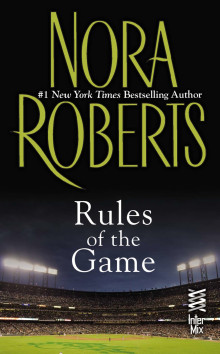 Rules of the Game
Rules of the Game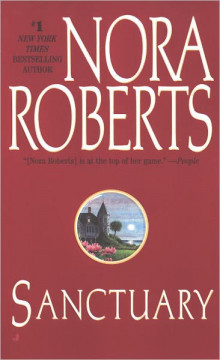 Sanctuary
Sanctuary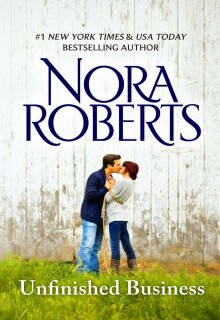 Unfinished Business
Unfinished Business Cordina's Royal Family Collection
Cordina's Royal Family Collection Dangerous Embrace
Dangerous Embrace One Summer
One Summer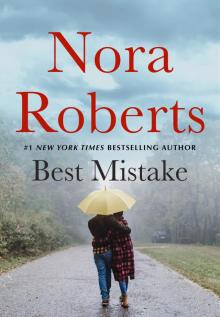 The Best Mistake
The Best Mistake Boundary Lines
Boundary Lines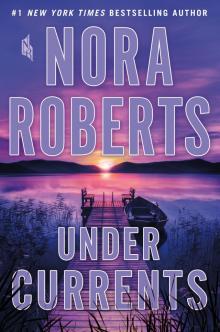 Under Currents
Under Currents The Stanislaski Series Collection, Volume 1
The Stanislaski Series Collection, Volume 1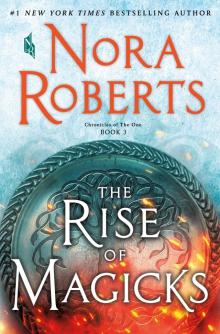 The Rise of Magicks
The Rise of Magicks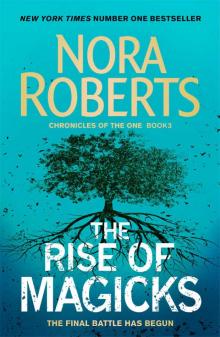 The Rise of Magicks (Chronicles of The One)
The Rise of Magicks (Chronicles of The One)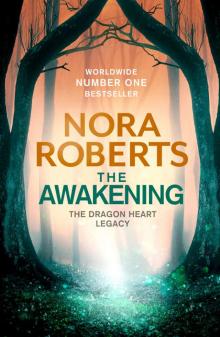 The Awakening: The Dragon Heart Legacy Book 1
The Awakening: The Dragon Heart Legacy Book 1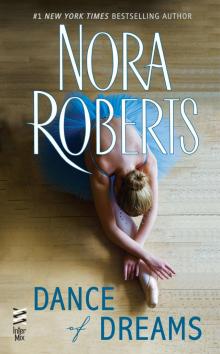 Dance of Dreams
Dance of Dreams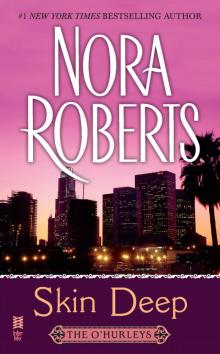 Skin Deep: The O'Hurleys
Skin Deep: The O'Hurleys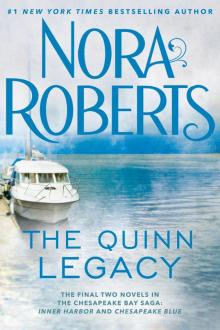 The Quinn Legacy: Inner Harbor ; Chesapeake Blue
The Quinn Legacy: Inner Harbor ; Chesapeake Blue![[Chronicles of the One 03.0] The Rise of Magicks Read online](http://i1.bookreadfree.com/11/chronicles_of_the_one_03_0_the_rise_of_magicks_preview.jpg) [Chronicles of the One 03.0] The Rise of Magicks
[Chronicles of the One 03.0] The Rise of Magicks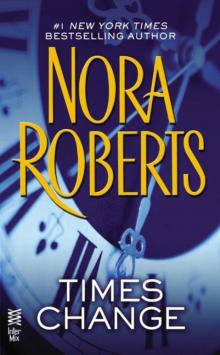 Times Change
Times Change Dance to the Piper: The O'Hurleys
Dance to the Piper: The O'Hurleys Christmas In the Snow: Taming Natasha / Considering Kate
Christmas In the Snow: Taming Natasha / Considering Kate Waiting for Nick
Waiting for Nick Summer Desserts
Summer Desserts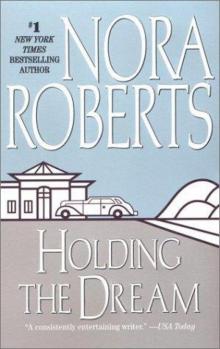 Dream 2 - Holding the Dream
Dream 2 - Holding the Dream The Novels of Nora Roberts, Volume 2
The Novels of Nora Roberts, Volume 2 In the Garden Trilogy
In the Garden Trilogy Eight Classic Nora Roberts Romantic Suspense Novels
Eight Classic Nora Roberts Romantic Suspense Novels Best Laid Plans jh-2
Best Laid Plans jh-2 From the Heart
From the Heart Holiday Wishes
Holiday Wishes Dream 1 - Daring to Dream
Dream 1 - Daring to Dream Second Nature
Second Nature Summer Pleasures
Summer Pleasures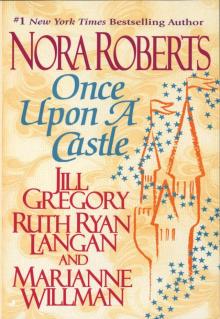 Once Upon a Castle
Once Upon a Castle Stars of Mithra Box Set: Captive StarHidden StarSecret Star
Stars of Mithra Box Set: Captive StarHidden StarSecret Star Impulse
Impulse The Irish Trilogy by Nora Roberts
The Irish Trilogy by Nora Roberts The Pride Of Jared Mackade tmb-2
The Pride Of Jared Mackade tmb-2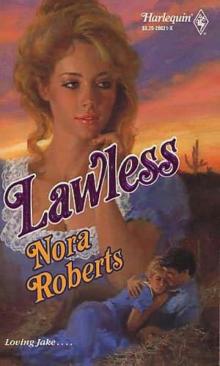 Lawless jh-3
Lawless jh-3 Taming Natasha
Taming Natasha Endless Summer
Endless Summer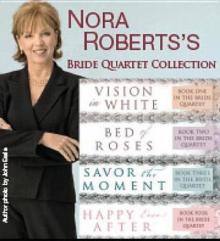 Bride Quartet Collection
Bride Quartet Collection Happy Ever After tbq-4
Happy Ever After tbq-4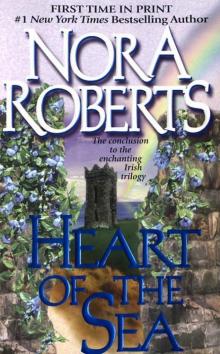 Heart Of The Sea goa-3
Heart Of The Sea goa-3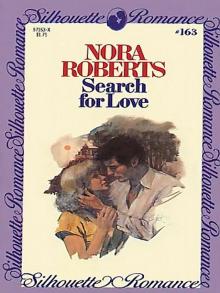 Search for Love
Search for Love Once upon a Dream
Once upon a Dream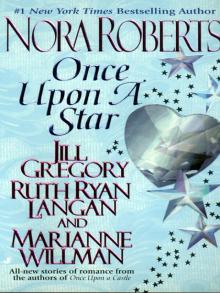 Once Upon a Star
Once Upon a Star Dream Trilogy
Dream Trilogy Risky Business
Risky Business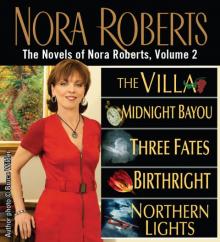 The Novels of Nora Roberts, Volume 3
The Novels of Nora Roberts, Volume 3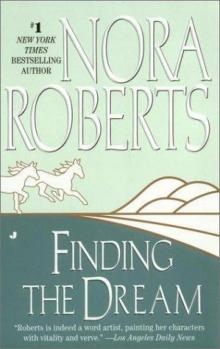 Dream 3 - Finding the Dream
Dream 3 - Finding the Dream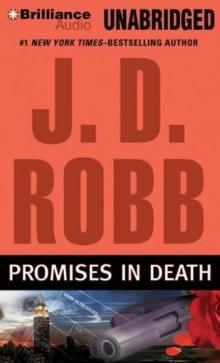 Promises in Death id-34
Promises in Death id-34 The Novels of Nora Roberts, Volume 4
The Novels of Nora Roberts, Volume 4 The Perfect Hope ib-3
The Perfect Hope ib-3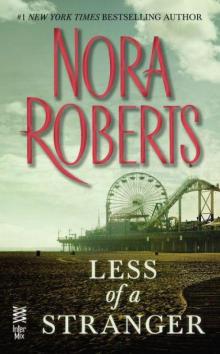 Less than a Stranger
Less than a Stranger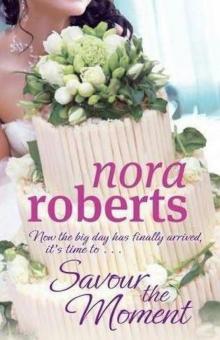 Savour the Moment: Now the Big Day Has Finally Arrived, It's Time To...
Savour the Moment: Now the Big Day Has Finally Arrived, It's Time To... Convincing Alex
Convincing Alex Bed of Roses tbq-2
Bed of Roses tbq-2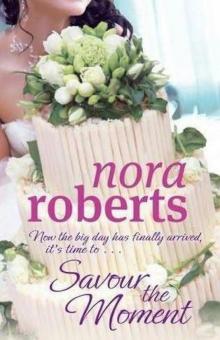 Savour the Moment tbq-3
Savour the Moment tbq-3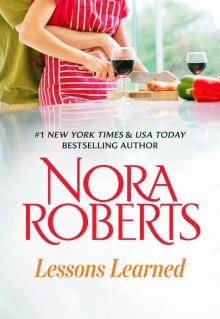 Lessons Learned
Lessons Learned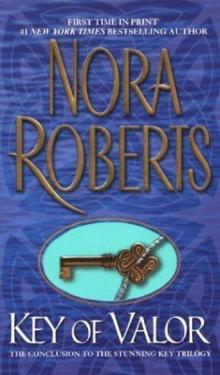 Key Of Valor k-3
Key Of Valor k-3 Red lily gt-3
Red lily gt-3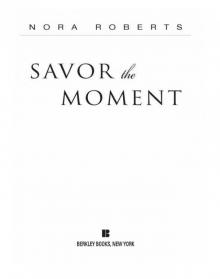 Savor the Moment
Savor the Moment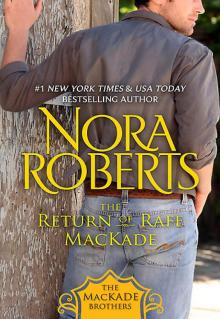 The Return Of Rafe Mackade tmb-1
The Return Of Rafe Mackade tmb-1 For The Love Of Lilah tcw-3
For The Love Of Lilah tcw-3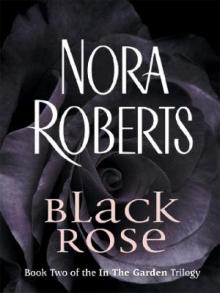 Black Rose gt-2
Black Rose gt-2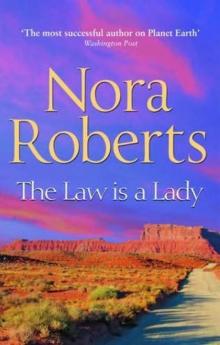 Novels: The Law is a Lady
Novels: The Law is a Lady Chesapeake Bay Saga 1-4
Chesapeake Bay Saga 1-4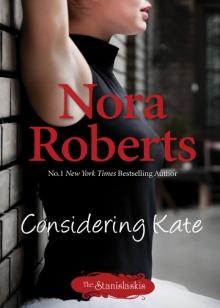 Considering Kate
Considering Kate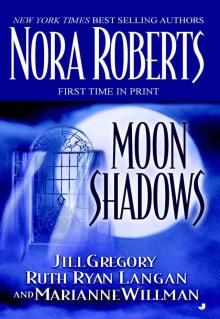 Moon Shadows
Moon Shadows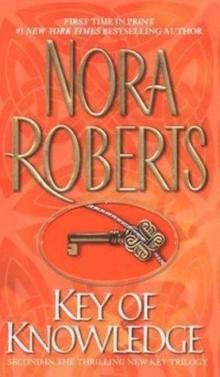 Key of Knowledge k-2
Key of Knowledge k-2 The Sign of Seven Trilogy
The Sign of Seven Trilogy Once Upon a Kiss
Once Upon a Kiss The Novels of Nora Roberts, Volume 5
The Novels of Nora Roberts, Volume 5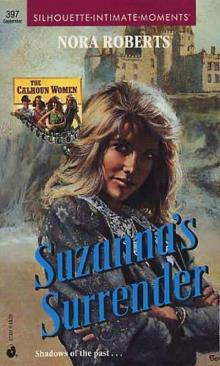 Suzanna's Surrender tcw-4
Suzanna's Surrender tcw-4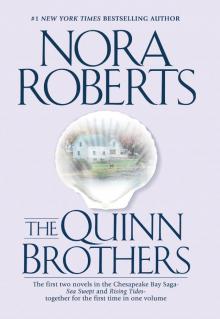 The Quinn Brothers
The Quinn Brothers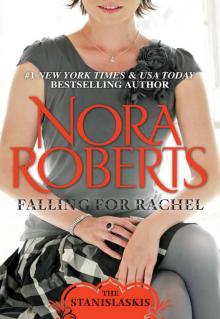 Falling for Rachel
Falling for Rachel Brazen Virtue
Brazen Virtue Time Was
Time Was The Gallaghers of Ardmore Trilogy
The Gallaghers of Ardmore Trilogy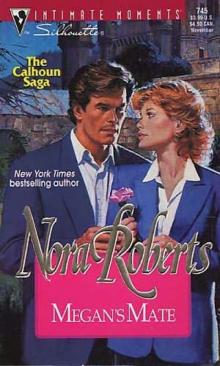 Megan's Mate tcw-5
Megan's Mate tcw-5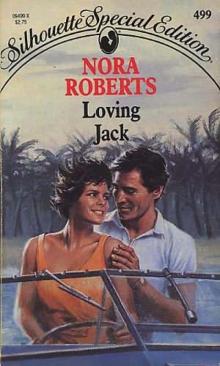 Loving Jack jh-1
Loving Jack jh-1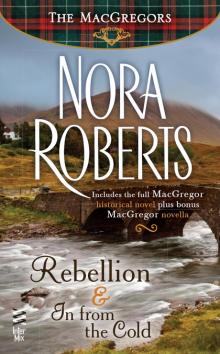 Rebellion & In From The Cold
Rebellion & In From The Cold Blue Dahlia gt-1
Blue Dahlia gt-1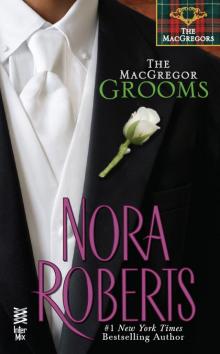 The MacGregor Grooms
The MacGregor Grooms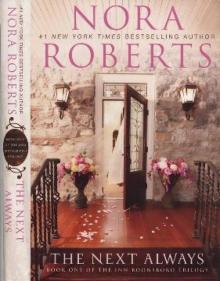 The Next Always tibt-1
The Next Always tibt-1 The Heart Of Devin Mackade tmb-3
The Heart Of Devin Mackade tmb-3 The Novels of Nora Roberts Volume 1
The Novels of Nora Roberts Volume 1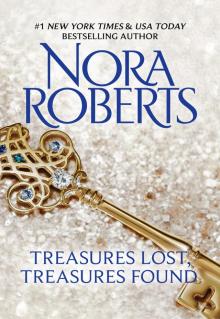 Treasures Lost, Treasures Found
Treasures Lost, Treasures Found Nora Roberts's Circle Trilogy
Nora Roberts's Circle Trilogy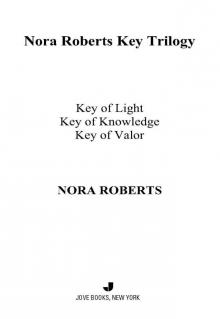 The Key Trilogy
The Key Trilogy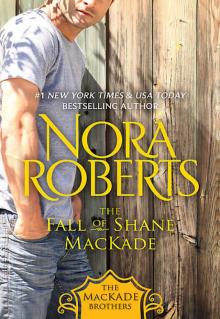 The Fall Of Shane Mackade tmb-4
The Fall Of Shane Mackade tmb-4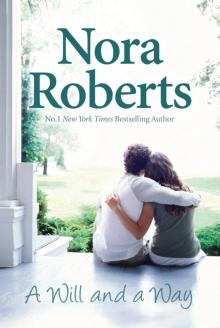 A Will And A Way
A Will And A Way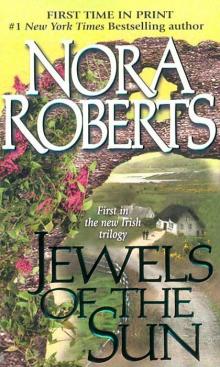 Jewels of the Sun goa-1
Jewels of the Sun goa-1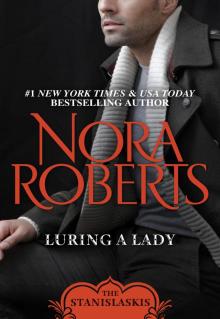 Luring a Lady
Luring a Lady